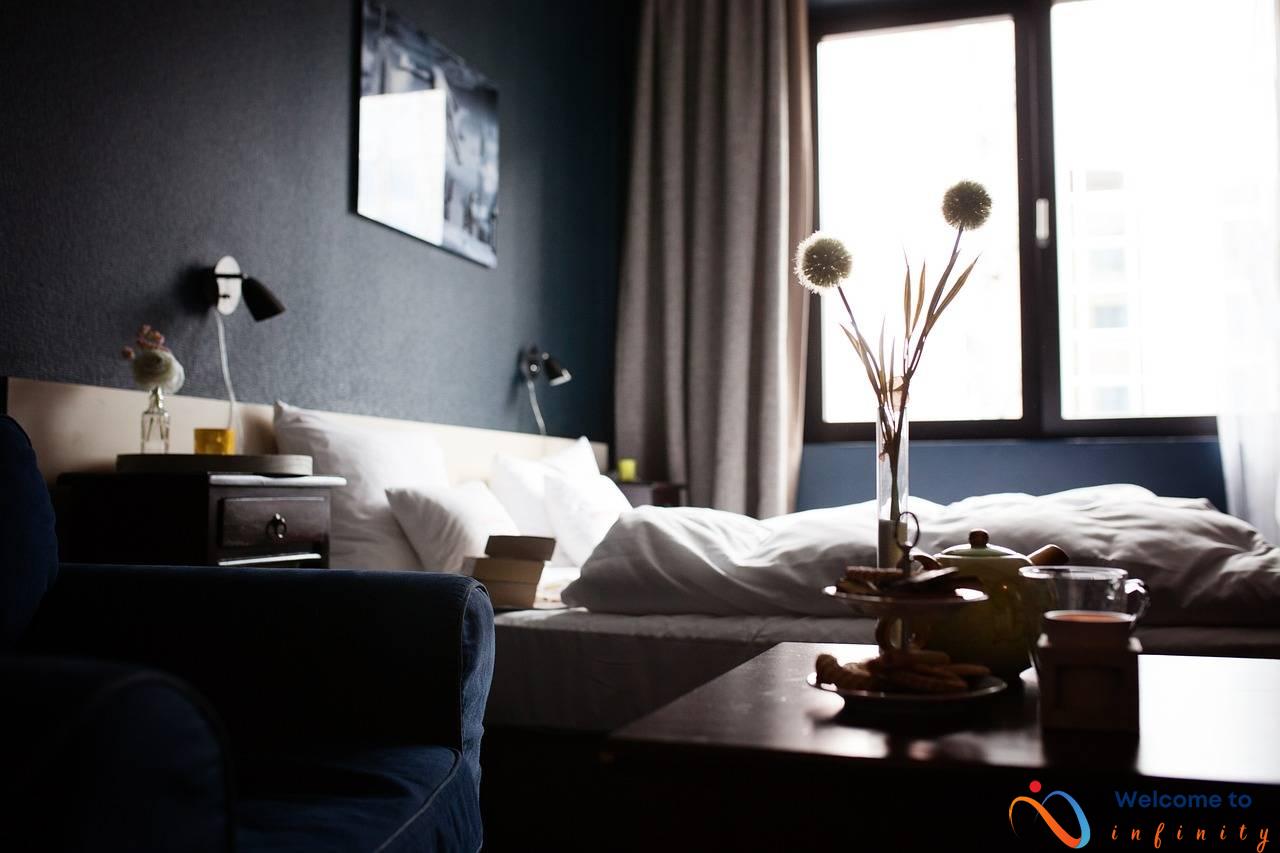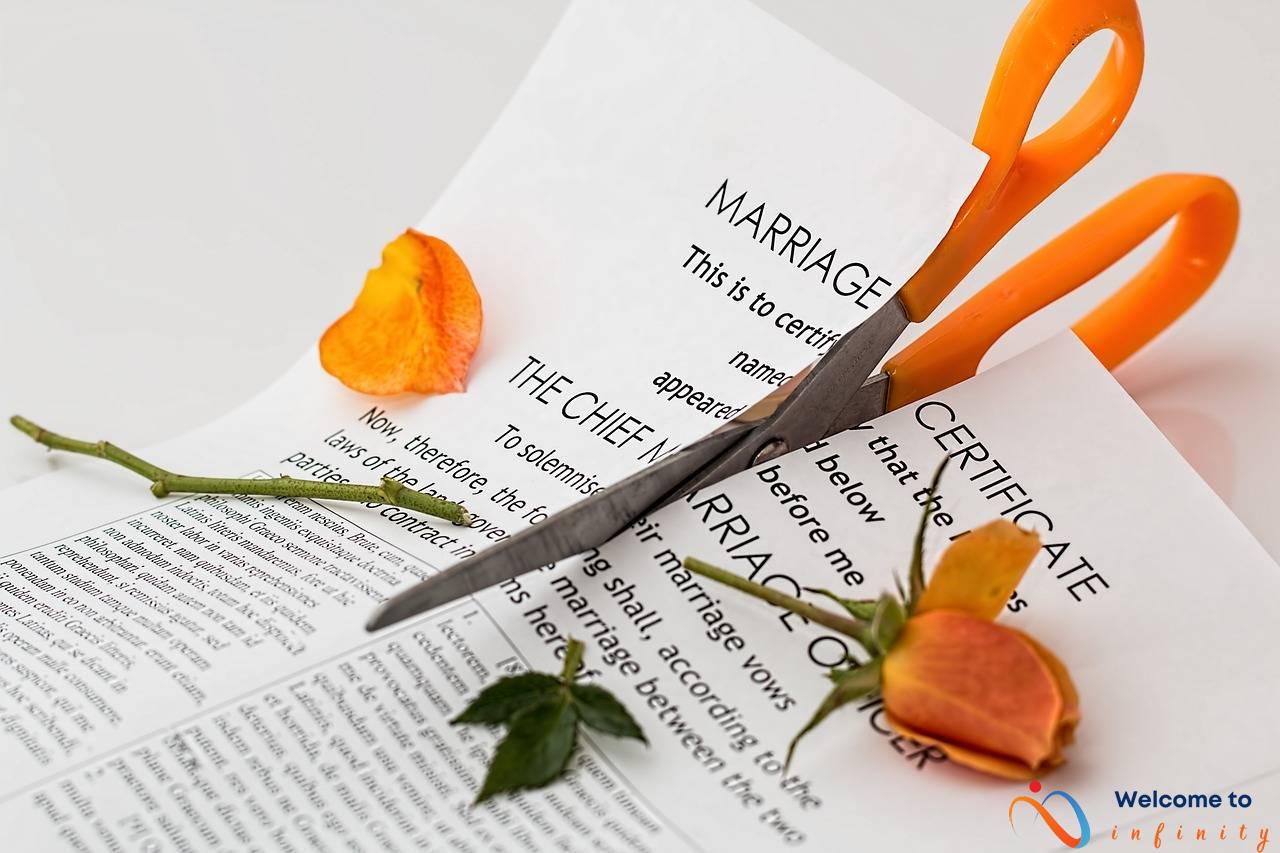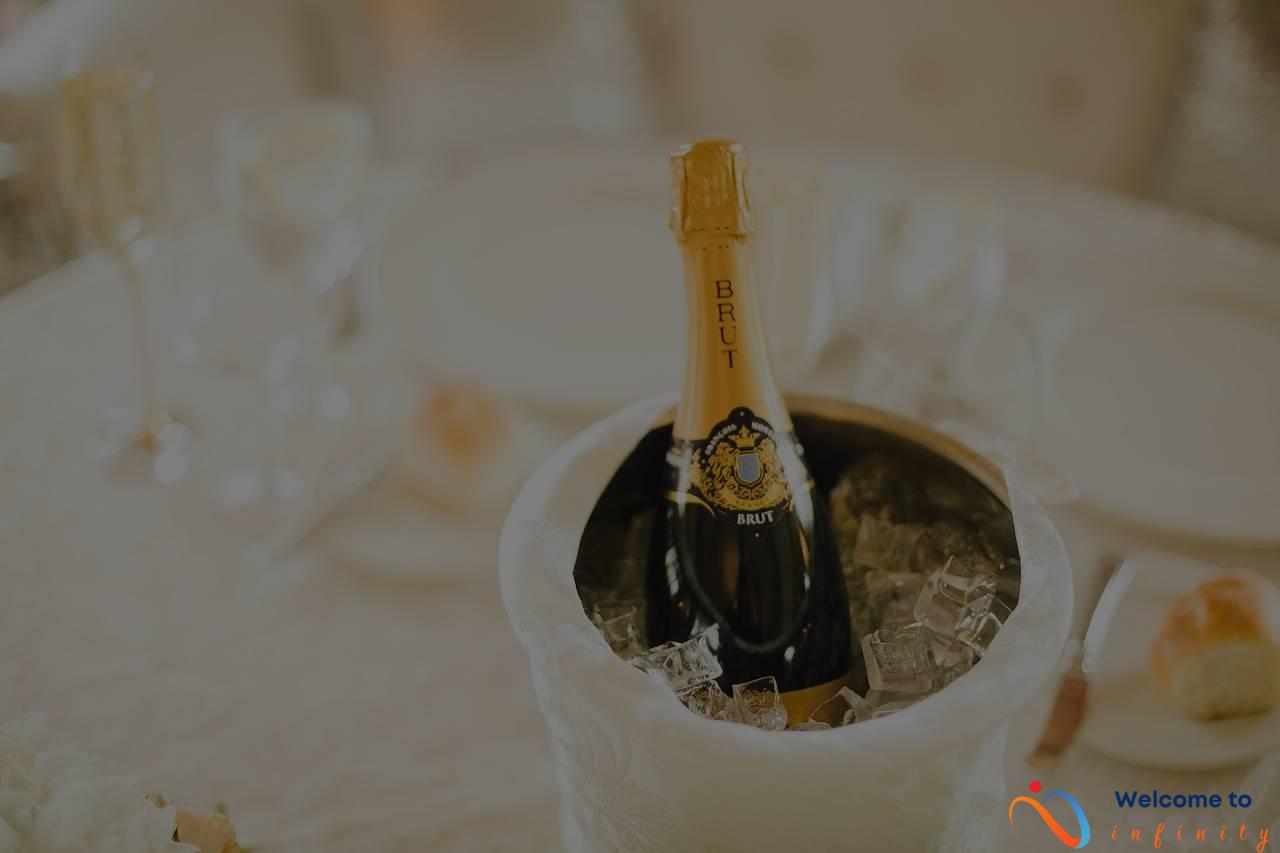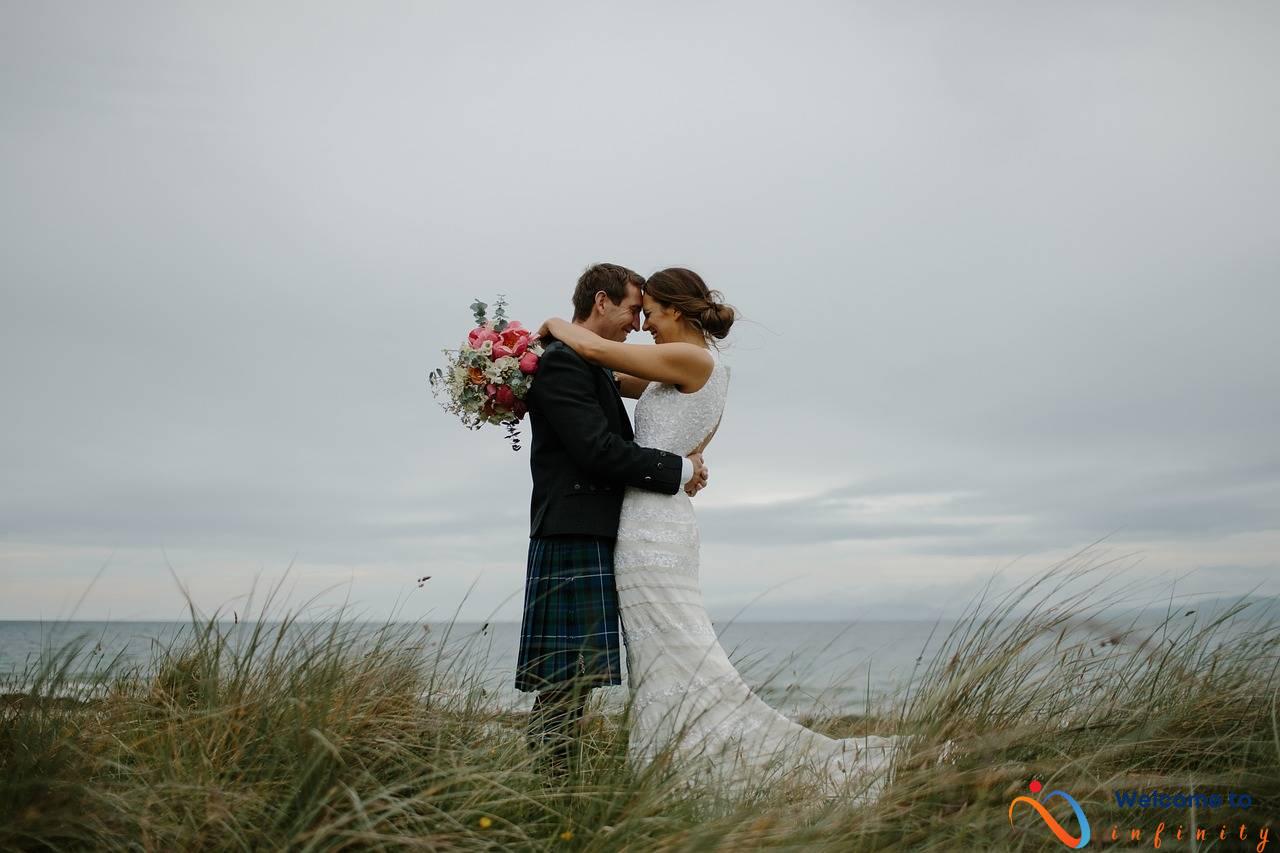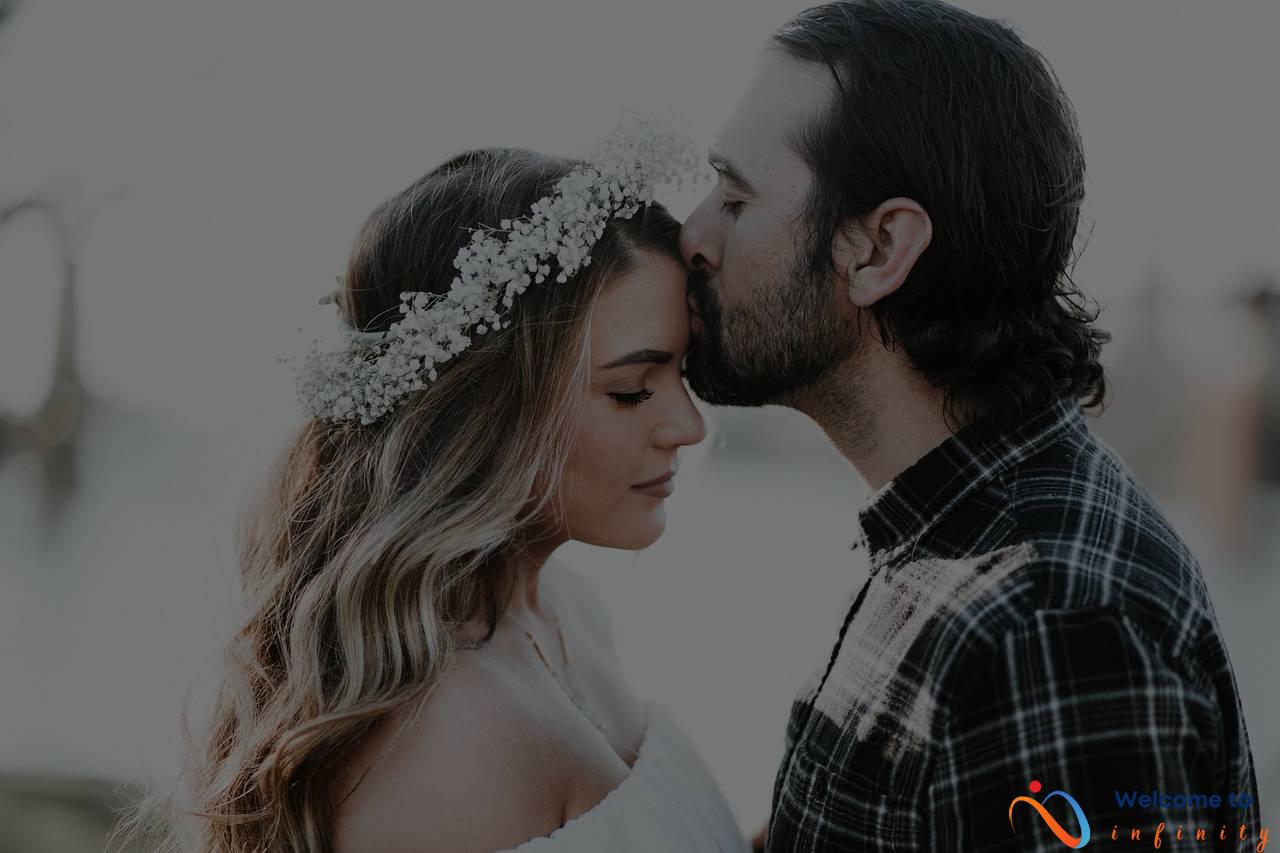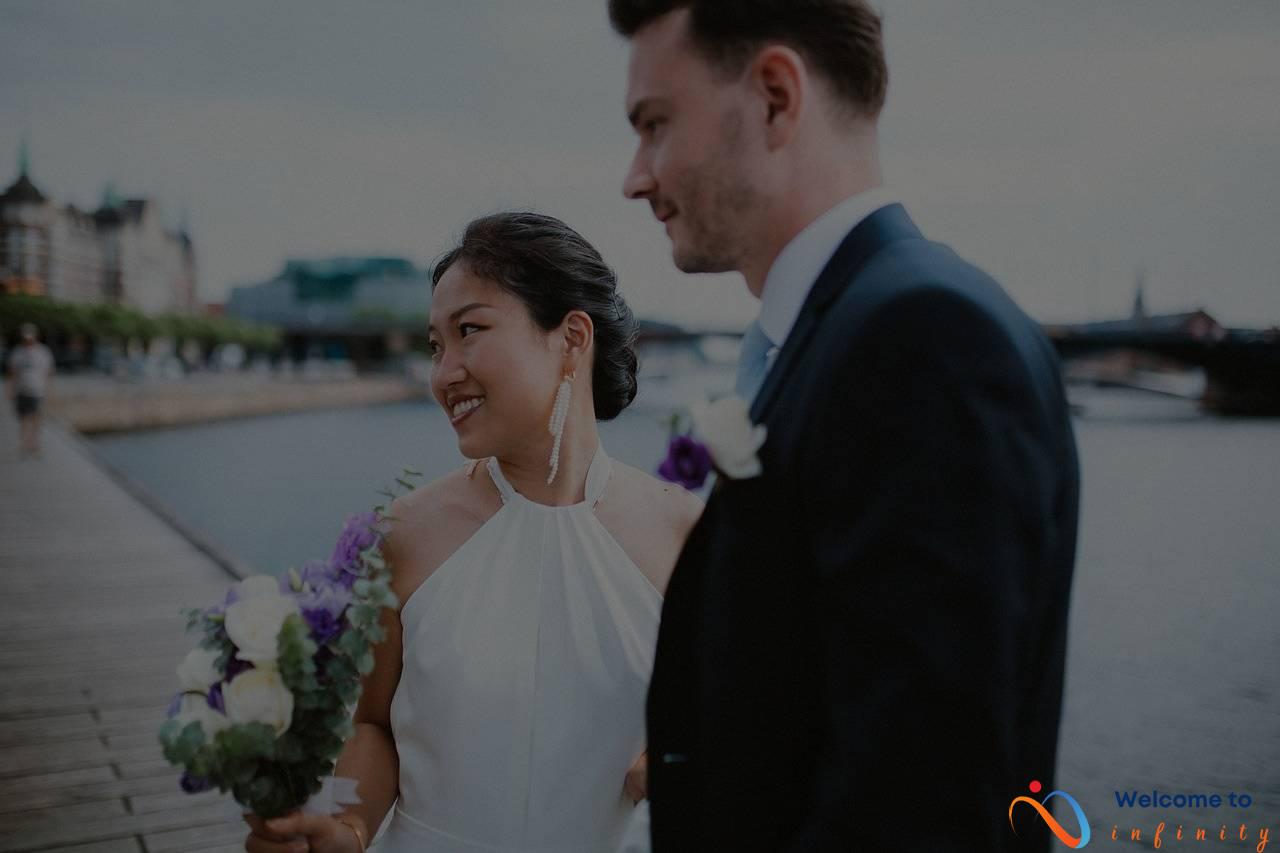Your wedding day is one of the most important days of your life, and choosing the perfect venue is essential to making it special. With countless options available, finding the perfect venue can be an overwhelming task. By keeping a few key factors in mind, you can select the ideal location for your wedding that will make it a day to remember.
Location is an essential factor to consider when choosing a wedding venue. The location should be easily accessible, both for you and your guests. If many guests are traveling from out of town, you may want to choose an event space near the airport or a hotel. Consider the scenery as well, a beautiful outdoor venue can make an unforgettable backdrop for your special day.
Budget is another critical factor to consider. It is essential to determine your budget and stick to it when selecting the perfect venue for your wedding day. This includes not only the rental cost but also the hidden costs such as taxes, gratuities, and cleaning fees. Some venues also require specific vendors, which can add to the overall cost. Check whether the venue allows outside vendors or not, as this can also impact your overall budget.
- Taxes
- Service charges
- Cleaning fees
- Specific caterers
- DJ or band requirements
- Rental equipment
- Refund policies
- Rescheduling policies
- Changes in guest count policies
There are two options when it comes to selecting a wedding venue – DIY or an established venue. If DIY is your style, you can choose to hold the wedding at home or an outdoor location, as it gives you more flexibility. However, if you don't want to worry about the logistics, an established venue may be a better option. Established venues come with equipped staff, parking, catering, and other amenities that you would need.
- DIY offers flexibility
- Established venues offer equipped staff and other amenities
Capacity and style of the venue is another essential factor. The venue should accommodate your entire guest list, along with any important social distancing measures. Consider the style of the venue as well, it should align with the style and theme of your wedding.
- Outdoor venues offer natural scenery
- Indoor spaces offer shelter from unexpected weather
- Know what decorations are permitted
- What items you need to bring
- What restrictions are in place
Amenities and services are crucial considerations when choosing the perfect wedding venue. Consider whether the venue offers catering services, setup, and cleanup services, as well as accommodations for guests.
- What food and drinks are available
- Pricing
- Dietary requirements
- Who is responsible for setup and cleanup
- Extra fees may apply
- Will there be an assigned staff member
- Is there on-site accommodation
- Is there a room block available
- What is the room rate
Finally, ensure that the venue is available on your desired event date, and that the contract and deposit terms are agreeable. Your wedding day is one that you'll never forget, and choosing the perfect venue is the first step towards making it special.
- Is the venue available on your desired date?
- Is the venue available for your preferred hours
- What are the contract terms
- Is a deposit required
- What is the payment schedule
Location
Choosing the perfect wedding venue starts with finding the right location. Whether it's a beachfront, countryside or urban setting, the location should align with the theme and style of your wedding. Consider convenience for the bridal party and guests by choosing venues that are easy to access. If you're planning to have an outdoor wedding, ensure that the weather is ideal for your selected date. This will prevent any last-minute disruptions due to weather conditions. Additionally, if you're opting for an indoor venue, ensure that the space offers ample natural light or that the venue has quality lighting equipment.
Before settling on a location, it is important to have a clear understanding of the local zoning laws and restrictions. Some locations may require permits or have noise restrictions that could limit your party's enjoyment of the event. Also, consider whether the venue has adequate parking space and whether there are additional spots to park nearby. This will help to avoid overcrowding and give the guests ample space to enjoy the festivities.
An option to consider when selecting a location is whether to hold the wedding and reception in the same venue or different places. Holding both events in the same place ensures minimal travel time and cost, while having them in different venues provides a change of scenery. Discuss the pros and cons of both options with your partner and event coordinator to help make the best decision.
Lastly, pay attention to the venue's surrounding area and scenery. Ideal locations are those that offer breathtaking views or have picturesque landmarks that will create unforgettable memories in your wedding album.
Budget
Budget is a significant factor to consider when selecting the perfect wedding venue. You want to ensure that the venue is within your budget so that you don't overspend on this single item and exceed your overall budget for the wedding. Before booking any venue, create a detailed budget of all your wedding expenses. It should include everything, from the venue to catering, music, flowers, and more. This way, you can identify how much you're willing to spend on the venue and prevent overspending.
- Establish a budget range for your wedding, including the venue cost
- Compare venue prices to ensure it's within your budget
- Find out what's included in the venue cost
- Remember to account for any additional costs, such as taxes and gratuities
You also need to consider that the cheapest venue may not provide you with the best experience, while an expensive one might be out of your price range. Research and compare different venues within your budget range, and choose one that offers the services and amenities you need. You might even get lucky and find a venue that offers special discounts and deals for weddings held on weekdays or during off-peak months.
Ultimately, you want to choose a wedding venue that fits your budget and provides the services, amenities, and experiences you desire. Remember to keep your budget in mind and avoid overspending so that you can enjoy a spectacular wedding without straining your finances.
Hidden Costs
When choosing the perfect wedding venue, hidden costs are often overlooked. Before committing to a venue, it's important to ask for a complete breakdown of all costs associated with the space. Some venues have hidden fees for things like parking or security, and these costs can quickly add up and bust your budget. Additionally, some venues require you to use specific vendors for catering or decorations, which can also come with extra costs. Don't be afraid to ask for a detailed contract and read it thoroughly to avoid any surprises later on.
Another hidden cost to keep in mind is overtime fees. Venues often have a set time for events to end, and if you go past that time, you could end up paying extra for every hour you stay. Make sure to plan your event accordingly and factor in the cost of overtime if necessary. Also, be sure to ask about any additional fees for setup and cleanup services. Some venues include these services in their package, while others charge extra.
Creating a budget and sticking to it is essential when planning your wedding, and taking hidden costs into account can help you avoid overspending. Always ask for a complete breakdown of costs and read the fine print before signing any contracts. By being diligent and choosing a venue that fits both your style and budget, you'll be well on your way to the wedding of your dreams.
Vendor Requirements
When selecting your wedding venue, it's important to consider their vendor requirements. Some venues may have a preferred list of vendors they work with exclusively, while others may allow you to bring in your own outside vendors. If the venue requires you to use their vendors, ask for a list and do your own research to ensure they meet your standards and budget. Additionally, if you plan on using outside vendors, ask if there are any fees or restrictions for doing so. It's important to clarify these details before signing a contract to avoid any unexpected surprises. Finally, make sure your vendors are familiar with the venue and its policies to ensure a stress-free day.
Cancellation Policies
When it comes to booking a wedding venue, cancellation policies are an important factor to consider. Be sure to thoroughly review the venue's cancellation policies before signing any contracts. Some venues may require a non-refundable deposit to secure your date, while others may offer some flexibility for cancellations. It's important to be aware of any fees or penalties that may apply if you need to cancel or reschedule your event. Consider purchasing wedding insurance to protect your investment in case of unforeseen circumstances. With careful planning and a clear understanding of the venue's cancellation policies, you can have peace of mind and avoid any potential financial losses.
DIY vs. Established Venue
Choosing between a DIY (Do It Yourself) venue and an established one can be a tough decision. While DIY venues give couples the flexibility to completely personalize their wedding day, established venues come with built-in services and amenities that can save a lot of time and hassle.
DIY venues, typically outdoor spaces such as a field or a barn, allow couples to completely customize their wedding day to their unique vision. From choosing vendors to the layout of the space, couples can have complete control over their big day. However, this also means that it may take more time and effort to plan everything out and coordinate with different vendors.
On the other hand, established venues usually provide pre-set services and amenities such as catering, setup and cleanup services, and even accommodations for guests. This can greatly reduce the amount of planning and coordination required by the couple. Additionally, established venues usually have contingency plans in place for unexpected situations, such as rain or power outages.
When deciding between a DIY and established venue, it's important to consider factors such as the couple's desired level of involvement in the planning process, how much time and energy they are willing to commit, and their budget. Couples should also keep in mind that DIY venues may require renting additional equipment, such as tables and chairs, whereas established venues may include these in their package.
In the end, the decision between a DIY and established venue boils down to personal preference and priorities. Whether the couple wants complete control over their big day or prefers the convenience and efficiency of an established venue, the perfect wedding venue is out there waiting to be found.
Capacity and Style
When it comes to choosing the perfect wedding venue, capacity and style are key factors to consider. You want a space that not only fits your guest list but also reflects your personal taste and vision for your special day.
Begin by determining your ideal guest count and narrowing down your search to venues that can comfortably accommodate that number. Keep in mind that some spaces may have maximum or minimum guest requirements, so be sure to ask before booking.
Next, think about the style and atmosphere you want to create. Do you envision a rustic barn wedding or a modern, minimalist celebration? Look for venues that match your desired aesthetic and have the flexibility to bring your vision to life.
- Consider factors such as:
- Architectural style
- Decor options
- Lighting
- Furniture
- Color scheme
If you're struggling to find a venue that meets both your capacity and style needs, consider creative solutions such as hosting the ceremony and reception in separate spaces or opting for a non-traditional venue like an art gallery or historic library. Don't be afraid to think outside the box!
Ultimately, choosing a wedding venue that fits both your guest count and personal style will set the tone for your entire celebration. Take your time, do your research, and don't hesitate to ask questions – finding the perfect space is worth the effort.
Indoor vs. Outdoor
When selecting a wedding venue, one of the most important decisions to make is whether your event will be held indoors or outdoors. Each option has its own unique benefits and drawbacks that should be considered before making a decision.
Indoor weddings provide a climate-controlled environment that can be ideal for those who want to avoid the unpredictable weather patterns of the outdoors. An indoor venue can also offer more flexibility in terms of layout and decor since you won't be limited by things like uneven terrain or weather-related restrictions. Additionally, indoor venues often have built-in amenities like catering kitchens, restrooms, and sound systems that can make the planning process much easier.
On the other hand, outdoor weddings can be incredibly beautiful and romantic, especially when they take place in a natural setting like a garden or by the beach. Outdoor venues can also be more cost-effective since you won't have to spend as much on decor or lighting. However, it's important to keep in mind that outdoor weddings come with their own set of challenges, such as the weather, insects, and noise from nearby traffic or crowds.
Ultimately, the decision between an indoor or outdoor wedding will depend on your personal preferences, budget, and logistical needs. If you're still unsure which option is right for you, consider asking your wedding planner or venue coordinator for their recommendations based on your specific needs and vision for your big day.
Decorating Flexibility
Decorating your wedding venue is an essential aspect of creating the perfect ambiance for your big day. Therefore, you should choose a venue that offers decorating flexibility. Make sure to ask the venue coordinator about their decorating policy and be clear on what you are and are not allowed to do. Some venues have strict restrictions on decor, while others offer complete creative freedom.
If you have a specific theme or color scheme in mind, look for a venue that complements it. For example, if you want a rustic vibe, choose a venue with exposed brick walls and wooden ceiling beams. If you're aiming for a modern and chic look, a venue with clean lines, minimalistic decor, and lots of natural light will be perfect.
Furthermore, consider the type of decorations you plan to use and their compatibility with the venue. Venues with high ceilings can accommodate more elaborate centerpieces, while smaller venues will require you to be more creative with your decor. If the venue has a lot of natural light, you can utilize colorful flower arrangements to add a pop of color.
When it comes to decorating, do not forget about the logistical aspects, such as power supply and lighting. Make sure the venue has enough outlets if you plan to use multiple electronic devices. Additionally, check if the venue can provide extra lighting equipment, especially if you have planned your wedding at night.
In summary, choosing a wedding venue with flexible decorating options is essential to creating the perfect wedding ambiance. Discuss your vision with the venue coordinator, and make sure it aligns with the decor options offered. Factor in the venue's characteristics such as lighting, space, and compatibility to maximize your decorating flexibility.
Services and Amenities
When considering a wedding venue, it's important to take into account the services and amenities that are offered. These can make a big difference in the overall experience of your special day. When touring potential venues, ask about the following:
- Catering options: Will the venue provide catering services, or will you need to bring in your own caterer? Do they offer a variety of options to fit your tastes and budget?
- Setup and cleanup: Will the venue staff set up and clean up the event space, or will you need to do it yourself or hire outside help?
- Accommodations: If your wedding will have guests coming from out of town, it's important to inquire about any on-site accommodations that are available, such as guest rooms or suites.
In addition to these key services, consider any additional amenities that may be of interest to you and your guests. This could include anything from a built-in sound system or projection screen for slideshows, to outdoor activities like lawn games or fire pits. Take note of any extra fees that may be associated with certain amenities, and make sure they align with your budget.Ultimately, the services and amenities offered by the venue can play a big role in creating a stress-free and enjoyable wedding experience for all involved. Don't be afraid to ask questions and be clear about your needs and expectations.
Catering Options
One of the most important aspects to consider when choosing a wedding venue is catering options. Most venues offer catering services, but some allow outside caterers or have a preferred vendor list. It is important to inquire about these options when selecting your venue.
Your catering options may also depend on the style of your wedding and the dietary restrictions of your guests. Some venues offer a variety of menu options, including vegetarian, vegan, and gluten-free. It is important to communicate your needs and preferences with your venue and caterer in advance.
The cost of catering can vary greatly and may be priced per person, by the menu item, or as a flat fee. It is important to understand the cost breakdown and ask about any additional fees. It is also helpful to taste test the food before making a final decision.
When selecting a venue, it is important to consider the catering options as part of your overall budget. If the venue offers catering services, it may be more cost-effective to use their in-house caterer. However, if you have a specific caterer in mind, make sure the venue allows for outside catering and any associated fees.
- Communicate dietary restrictions with your venue and caterer
- Understand the cost breakdown and ask about additional fees
- Taste test the food before making a final decision
Overall, catering options are an important aspect of selecting the perfect wedding venue. Knowing your options and budget can help you make an informed decision that will make your big day unforgettable.
Setup and Cleanup
Choosing the perfect venue for your wedding involves more than just finding a beautiful location that fits your budget and style. It also involves considering the services and amenities that are included, including setup and cleanup services.
When selecting a wedding venue, consider the setup and cleanup services that are offered. Some venues may include these services in the rental fee, while others may require additional fees for these services. The setup process includes preparing the venue for your wedding, which may include moving furniture, setting up tables and chairs, and putting up decorations. The cleanup process involves cleaning up after the wedding and returning the venue to its original state.
- Ask if the venue provides setup and cleanup services, and if so, what is included in those services.
- If the venue does not offer these services, consider hiring a wedding planner or coordinator to manage the setup and cleanup process.
- You may also want to consider hiring a cleaning crew to ensure that the venue is properly cleaned and returned to its original state after your wedding.
It's important to remember that even if the venue provides setup and cleanup services, it's still a good idea to have a backup plan just in case. This could include bringing in additional help or assigning family and friends to assist with setup and cleanup tasks.
Overall, selecting a wedding venue that offers setup and cleanup services can help take the stress out of your big day. Make sure to ask detailed questions about these services before making your final decision.
Accommodations
When choosing a wedding venue, it's important to consider accommodations for your guests. If you're planning an out-of-town wedding, your guests will need a place to stay, and you'll want to provide them with comfortable and convenient options. Most wedding venues offer on-site accommodations or have preferred partnerships with nearby hotels and resorts, so you may want to inquire about this. If not, you can research nearby accommodations yourself and provide your guests with a list of options that range in price and style.
If you're providing on-site accommodations, you'll want to make sure they're comfortable and up to your standards. Inspect the rooms ahead of time and ensure they're clean, spacious, and have the amenities your guests will need, such as private bathrooms, air conditioning, and Wi-Fi. You may also want to consider providing additional amenities, such as breakfast or transportation to and from the wedding venue.
For out-of-town guests, it's also important to consider their transportation needs. Provide them with information on the nearest airport and transportation options from the airport to the wedding venue. You can also arrange for transportation to and from the wedding venue for your guests for added convenience. Your out-of-town guests will appreciate any effort you make to help them navigate the area and make their stay as comfortable as possible.
Availability and Booking
When it comes to choosing the perfect wedding venue, availability and booking should be one of your top considerations. Begin your search well in advance to ensure the venue you desire is still available on your wedding date. Keep in mind that popular venues may book up quickly, particularly during peak wedding season.
Before booking, carefully review the contract to ensure all details are accurate and align with your expectations. Inquire about any potential conflicts that may affect your wedding date or time, such as other events that may be scheduled on the same day.
In addition to contract details, be prepared to put down a deposit to secure your venue. The amount required may vary between venues, so be sure to budget accordingly. Some venues may require a specific payment schedule, while others may offer more flexible payment options.
It is also important to consider any logistical factors that may affect your ability to book the venue, such as the distance from your home or wedding site. If you are planning a destination wedding, be sure to account for any additional travel costs and accommodations for you and your guests.
Ultimately, booking the perfect wedding venue requires careful planning and research. By considering availability, contracts, deposits, and logistical factors, you can ensure a smooth and stress-free booking process, allowing you to focus on the other important details of your big day.
Availability
When choosing the perfect wedding venue, availability is a vital factor to consider. The venue should be available on your preferred wedding date and time to ensure that your plans go without a hitch. Some venues can book up years in advance, so be sure to start your search early to increase your chances of finding the perfect venue. You can also consider having a weekday or off-season wedding that might offer more availability.
You can save time by creating a list of potential venues and their availability. Contact each venue to inquire about their availability on your preferred wedding date and time. It's also essential to confirm the availability of the outdoor spaces, especially if you plan to have an outdoor wedding.
If you're planning a destination wedding, be sure to check the availability of the venue during your preferred wedding season and dates. Keep in mind that some venues may offer discounts during off-seasons.
Overall, checking the availability of your preferred venue is vital, and you should always book in advance to avoid last-minute disappointments. Remember to check the availability of indoor and outdoor spaces as well as other amenities and services to ensure you have your dream wedding.
Contract and Deposits
After finding the perfect wedding venue, it is essential to carefully read and sign a contract, which should include all the details of the event, such as the date, time, price, and services offered. The contract should also specify the deposit amount required to secure the venue for the wedding day.
Make sure to carefully review the contract before signing, as it may include additional fees, restrictions, and cancellation policies that you should be aware of. It is recommended to discuss any concerns or questions with the venue coordinator before signing the contract.
Additionally, paying a deposit is necessary to secure the wedding venue for the big day. Be aware that the deposit amount may vary depending on the venue's policies, size of the event, and time of year. It is also important to discuss the payment schedule with the venue coordinator and ensure that it fits within your budget and financial planning.
Some venues may require a non-refundable deposit, so make sure to thoroughly read the contract and understand the cancellation policies before agreeing to the terms. It is also recommended to have a backup plan in case of unexpected changes or cancellation.
Overall, understanding the contract and deposit requirements is crucial when booking the perfect wedding venue. By carefully reviewing the details and communicating with the venue coordinator, you can ensure that your dream wedding becomes a reality.



